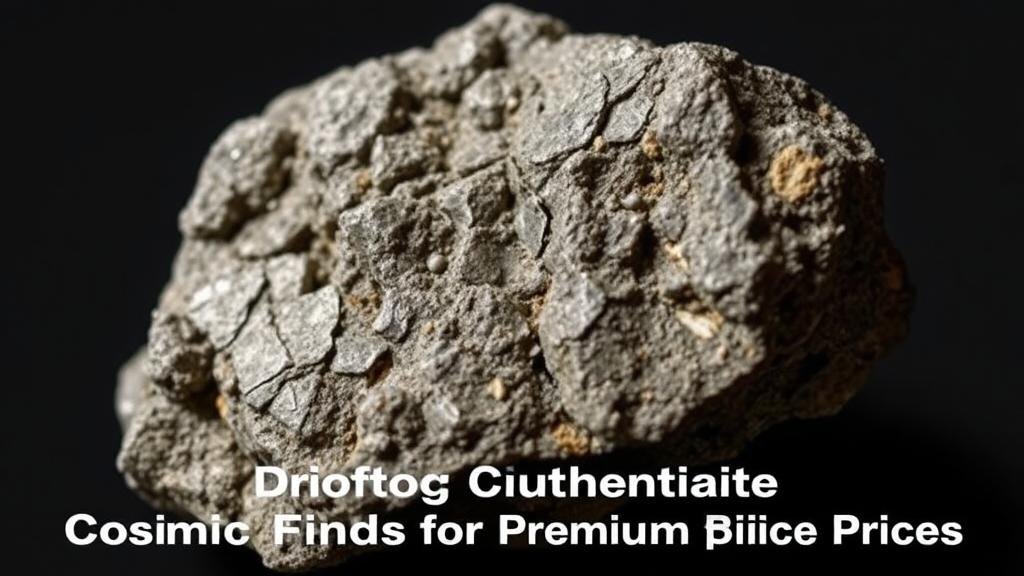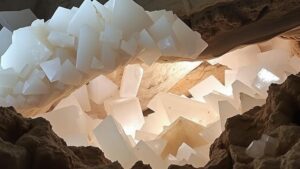Meteorite Certification: Authenticating Cosmic Finds for Premium Prices
Meteorite Certification: Authenticating Cosmic Finds for Premium Prices
For rockhounds and mineral collectors, finding a genuine meteorite is akin to stumbling upon a treasure from the cosmos. But, as the market for meteorites continues to grow, understanding the significance of certification becomes crucial. Meteorite certification ensures the authenticity of these celestial specimens, directly impacting their market value and desirability. This article delves into the importance of meteorite certification, the processes involved, and practical tips for collectors.
The Importance of Meteorite Certification
Meteorite certification serves multiple vital functions in the realm of meteorite collecting:
- Establishing Authenticity: Certification verifies that a specimen is indeed a meteorite and not a terrestrial rock or manufactured item.
- Proving Provenance: Original certificates can trace the meteorites history, including its meteorite class and where it was found.
- Enhancing Market Value: Certified meteorites tend to fetch higher prices on the market, driven by collector confidence in their quality and authenticity.
According to the Meteoritical Society, over 61,000 meteorite finds have been documented, with each having unique geological attributes. When collectors possess certified pieces, they gain assurance of their specimen’s place within this extensive catalog.
How Meteorite Certification Works
The certification process can be complex, involving several steps and scientific expertise. Key steps include:
- Initial Identification: Before a meteorite can be certified, it must undergo initial identification. This typically involves a visual inspection and simple tests, such as a magnetic test, which helps distinguish meteorites from ordinary rocks.
- Destructive vs. Non-Destructive Testing: Certified laboratories conduct detailed analyses. Non-destructive methods include X-ray diffraction (XRD) and scanning electron microscopy (SEM) while destructive tests may involve cutting into the meteorite to analyze its internal structure and composition.
- Final Certification: Upon completion of analysis, laboratories issue a certification document, which includes the meteorites classification, specific gravity, and mineral composition. Common classifications include chondrites, achondrites, and iron meteorites.
For example, the NWA meteorites (Northwest Africa) represent a large number of meteorites that have been identified and certified. These often come from unique, seldom-seen types, contributing to their greater value in collections.
Real-World Applications: Impact on Collectors
Meteorite certification has notable implications in the collector community, directly influencing purchasing decisions and price determinations. For example:
- A meteorite sold without certification may range from $10 to $50 per gram, but a certified specimen can yield prices upwards of $500 per gram, particularly for rare types.
- Selling certified meteorites on platforms like eBay or through specialized meteorite dealers can significantly increase a collectors chances of making a profitable sale.
- Signed certification letters can enhance memorabilia associated with historical events, making certified meteorites something more than just collectibles–they become pieces of cosmic history.
Practical Tips for Collectors
For rockhounds and mineral collectors enthusiastic about meteorites, here are actionable tips to navigate the world of certification:
- Do Your Research: Familiarize yourself with common meteorite types and what to look for in terms of authenticity. Resources such as the Meteorites and Their Parent Bodies by A. S. Agar can be beneficial.
- Connect with Reputable Laboratories: When seeking certification, choose well-known laboratories such as the American Meteor Society or the Institute of Meteoritics. Ensure they have a reputable history of meteorite classification.
- Keep Documentation: Maintain all certification documents in a safe place. This not only proves legitimacy but also enhances long-term value.
Conclusion
Meteorite certification is an essential aspect of collecting cosmic finds, providing authenticity, value, and a deeper connection to the universe. For rockhounds and mineral collectors, investing in certified meteorites not only ensures a quality collection but also fosters confidence when entering the buying and selling marketplace. By prioritizing certification, collectors can celebrate their passion for space while reaping potential financial benefits.


